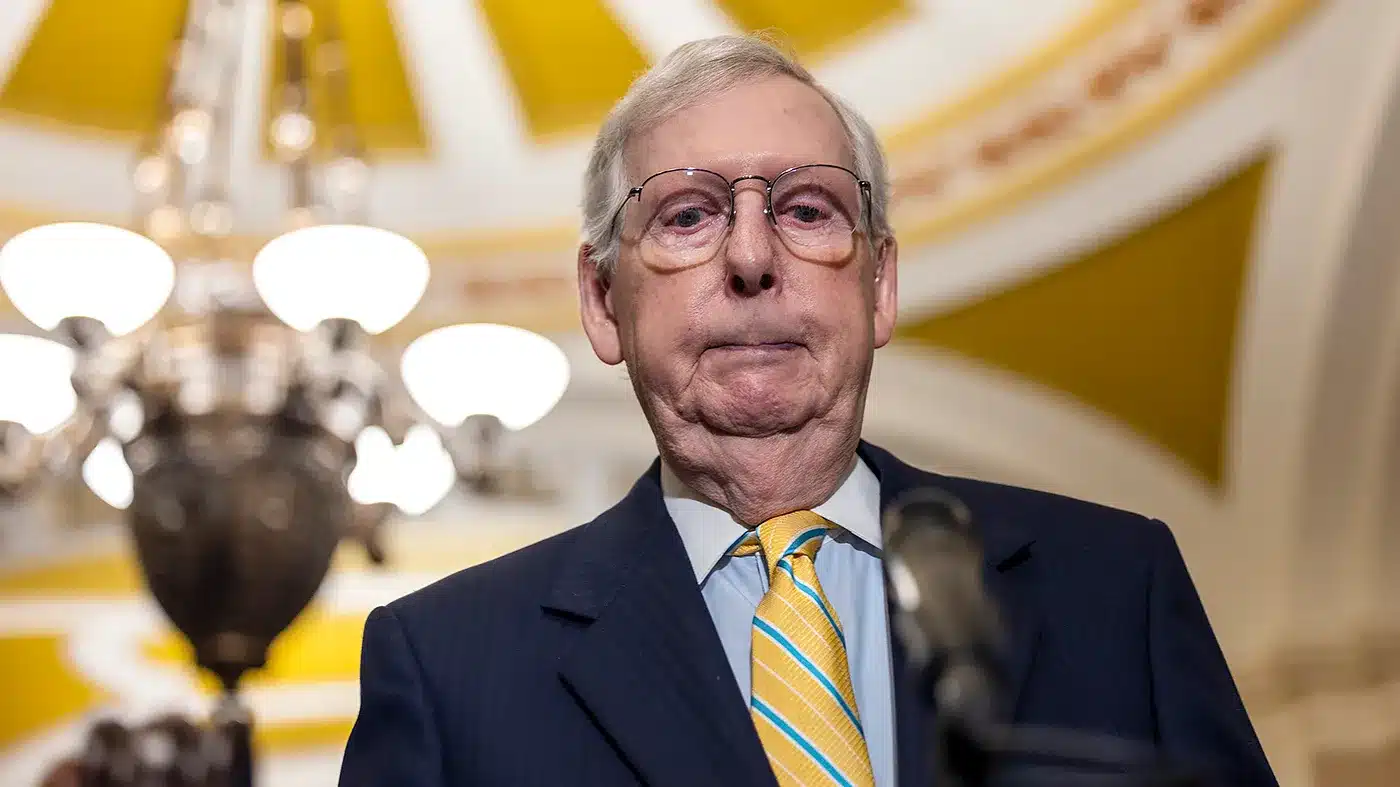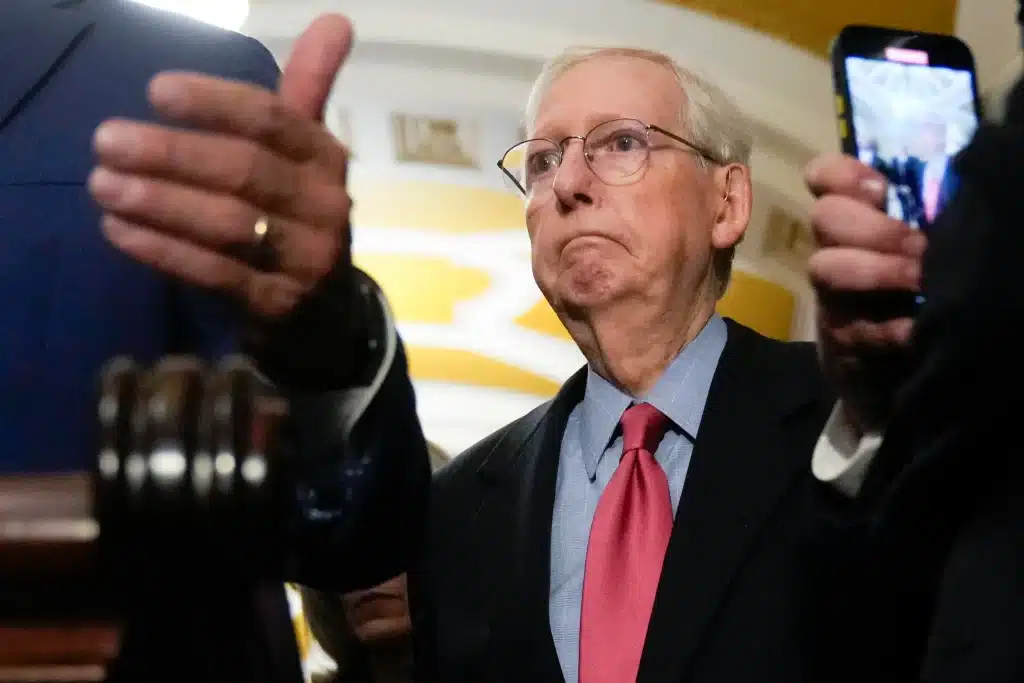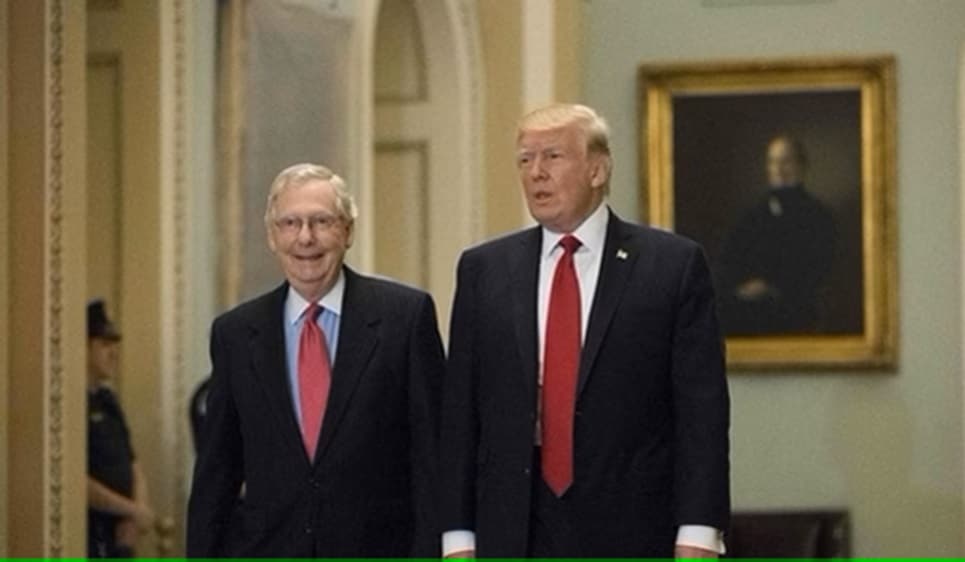In an unexpected turn of events, Mitch McConnell, a long-standing pillar in Republican leadership, has declared his intention to resign as GOP senate leader. McConnell, famed for his strategic influence and political acumen, will leave his role as Senate Republican leader after an extraordinary term.
This development represents a significant upheaval in the political environment, as McConnell’s resignation is expected to have a rippling effect on the Republican leadership. With his resignation, concerns emerge regarding the party’s future orientation and the forces that will influence its trajectory in the following months.
McConnell, the Senate Republican leader since 2007, announced his resignation at a critical juncture, leaving many to wonder what his departure would mean for the party’s future and the larger political environment.
As the countdown to his departure in November begins, speculation abounds about prospective successors and the new leadership dynamics that may emerge during his absence.
Mitch McConnell has been a significant player in American politics for decades, having served as a senator from Kentucky since 1985. McConnell has been key in influencing policies on various subjects, including healthcare, tax reform, and judicial appointments.
Mitch McConnell’s Neoconservative policies
During the Trump administration, he was Senate Majority Leader because of his persistent support for conservative policies and skilful handling of legislative affairs in a fast-paced political environment.
McConnell’s decision to step away has left many in Washington perplexed and fascinated. While McConnell has not revealed specifics on his resignation, much speculation exists about possible causes.
Some political experts believe McConnell’s resignation was driven by changing dynamics inside the Republican Party, where neoconservative ideology plays a role in decision-making processes.
The neoconservative effect on McConnell’s decision to resign as Senate GOP leader has sparked conjecture in political circles. Neoconservatism, characterized by its hardline foreign policy approach, has significantly impacted conservative politics in recent years.
Some sources attribute McConnell’s choice to internal party dynamics or personal concerns, while others attribute it to a desire for a new chapter in his career. Regardless of the specific reasons, McConnell’s resignation will greatly impact the Republican Party’s future trajectory.
Former President Trump’s impact on Mitch McConnell and the Republican Party is unmistakable. Trump’s vocal criticism and fights with McConnell have been public and severe, causing divisions within the GOP.
Conflict With Trump
It is believed that Trump’s prolonged presence and influence within the party influenced McConnell’s decision to resign as Senate GOP leader. The conflict between McConnell and Trump shows the Republican Party’s internal battles and power dynamics.
As the political world speculates who may follow Mitch McConnell, numerous names have arisen as potential replacements.
The field of potential successors is varied and vibrant, with emerging stars inside the party and seasoned veterans with substantial legislative experience.
The decision of McConnell’s replacement will have immediate repercussions for Senate leadership, but it may also herald deeper changes within the Republican Party as it navigates the post-Trump scenario.
The selection of McConnell’s replacement is expected to be a game-changer in the political arena, with far-reaching ramifications for the party and the country.
With Neocon ideas colliding with the legacy of Trump’s presidency, the stage is set for a gripping story of intellectual transformation and strategic realignment.
McConnell’s resignation symbolizes the start of a new quest for leadership and unity inside the GOP as the party starts on a transformative journey to redefine its role in influencing the political landscape.
By Geoff Thomas











